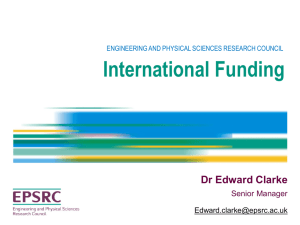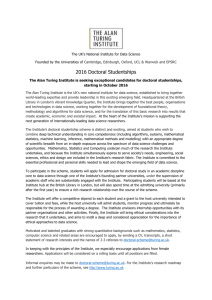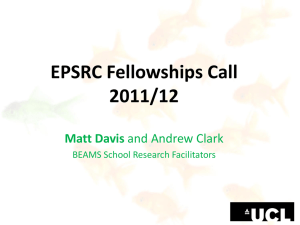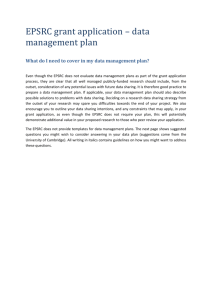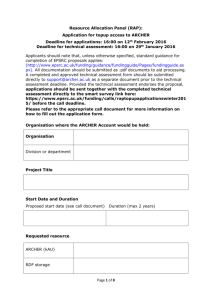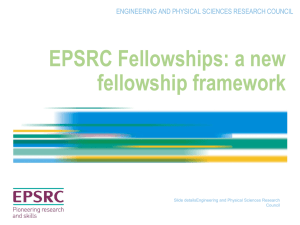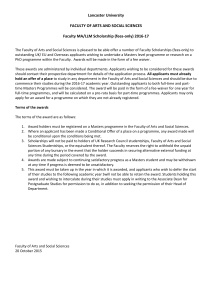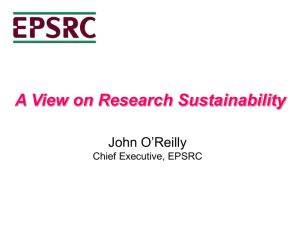Background notes on CASE Awards
advertisement
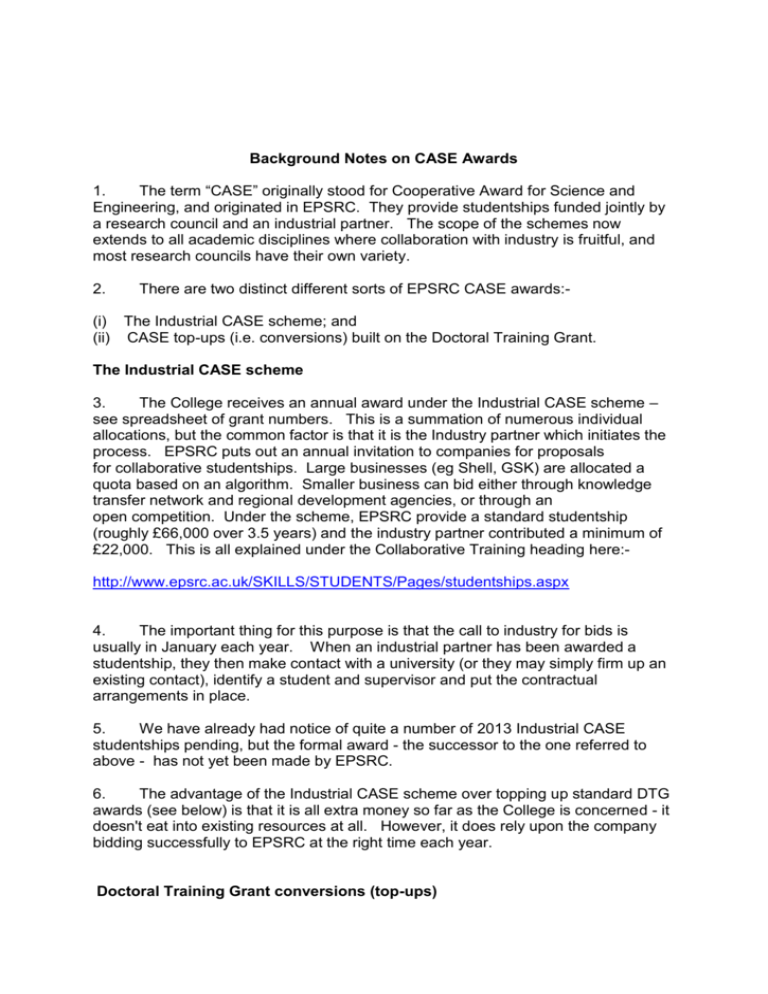
Background Notes on CASE Awards 1. The term “CASE” originally stood for Cooperative Award for Science and Engineering, and originated in EPSRC. They provide studentships funded jointly by a research council and an industrial partner. The scope of the schemes now extends to all academic disciplines where collaboration with industry is fruitful, and most research councils have their own variety. 2. There are two distinct different sorts of EPSRC CASE awards:- (i) The Industrial CASE scheme; and (ii) CASE top-ups (i.e. conversions) built on the Doctoral Training Grant. The Industrial CASE scheme 3. The College receives an annual award under the Industrial CASE scheme – see spreadsheet of grant numbers. This is a summation of numerous individual allocations, but the common factor is that it is the Industry partner which initiates the process. EPSRC puts out an annual invitation to companies for proposals for collaborative studentships. Large businesses (eg Shell, GSK) are allocated a quota based on an algorithm. Smaller business can bid either through knowledge transfer network and regional development agencies, or through an open competition. Under the scheme, EPSRC provide a standard studentship (roughly £66,000 over 3.5 years) and the industry partner contributed a minimum of £22,000. This is all explained under the Collaborative Training heading here:http://www.epsrc.ac.uk/SKILLS/STUDENTS/Pages/studentships.aspx 4. The important thing for this purpose is that the call to industry for bids is usually in January each year. When an industrial partner has been awarded a studentship, they then make contact with a university (or they may simply firm up an existing contact), identify a student and supervisor and put the contractual arrangements in place. 5. We have already had notice of quite a number of 2013 Industrial CASE studentships pending, but the formal award - the successor to the one referred to above - has not yet been made by EPSRC. 6. The advantage of the Industrial CASE scheme over topping up standard DTG awards (see below) is that it is all extra money so far as the College is concerned - it doesn't eat into existing resources at all. However, it does rely upon the company bidding successfully to EPSRC at the right time each year. Doctoral Training Grant conversions (top-ups) 7. The College also receives annually a Doctoral Training Grant allocation, roughly equivalent to about 100 studentships. These are mostly allocated to departments. It has always been open to departments to top these allocations up from other resources - including industry. For the past two years, however, EPSRC have put a specific target for conversion of 10% of standard DTGs to CASE studentships. There is no formal process for this. Departments should make their own arrangements with company contacts in order to turn existing DTG studentships into CASE awards. The collaboration needs to be recorded on J-eS, and ESPRC will ask for information about our success in this area when we come to submit the Final Expenditure statement for the DTG award in question. Contractual arrangements with the Industry partner. 8. For most Industrial CASE awards, the Industry partner will submit a tri-partite contract between the College, the student, and the partner, covering matters such as industry supervision of the research, payment arrangements and intellectual property rights. Billing the industry partner 9. It is the responsibility of the department in which the CASE award is held to ensure that the industry contribution is billed. A sales invoice request form should be submitted directly to Accounts receivable:http://www3.imperial.ac.uk/finance/sections/accountsreceivable Accounting for CASE awards 10. There are two different approaches, equally valid. EITHER:- (i) the entire award for a given student – including the industry portion – can be administered via the designated G code, as shown in annex 1. The Research Council component will be credited automatically by Credit Control, as it arrives in quarterly instalments from the Research Council. The industry partner’s contribution will be credited when billed (see paragraph 9), and should be credited to analysis code 564605. The entire student bursary, tuition fee and other costs can be charged to the same activity code without distinction as to the source of funds; OR (ii) the industry portion can be held in a separate account code – for example an F code, with the student’s bursary being split-coded between the appropriate G code (for the Research Council portion) and the special code which has been set up for the industry element. No grants relating to training of postgraduate students should be accounted for as research activity. Other Research Councils 11. The arrangements described above relate to EPSRC. Other research councils are slightly different. Principal Investigators should always check the grant conditions carefully. MAA August 2013
